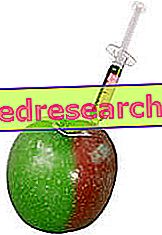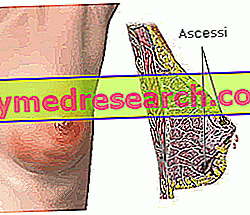Introduction to the topic
Healthy eating and a healthy lifestyle are the perfect mix for halitosis prevention, an embarrassing and unpleasant phenomenon that affects both sexes of all ages.
To prevent bad breath, it is not enough just to advise the use of toothpaste, toothbrush and mouthwash : it seems, in fact, that the diet greatly affects the freshness of a person's breath .
Food and smell of the breath

Avocado against halitosis
Dr. Dalloca (graduated in Dentistry at Tufts University Boston and at the University of Pavia) states that: " a valid reason for the treatment of halitosis of gastrointestinal origin is the consumption of avocado which [...] eliminates the food putrefaction in the intestinal tract " . A very special statement because the fruit of Persea Gratissima (avocado) has above all diuretic properties: probably this strange food is recommended to counteract the peculiar halitosis linked to gastro-intestinal problems, thanks also to the fiber content. The difficulty in digesting, in fact, is often linked to a negative response that affects the breath.
Water against halitosis
Surely, to enjoy an almost constant sensation of cleanliness and freshness of the mouth, it is advisable to take large quantities of water: the dryness of the mouth is in fact a cause-base of bad breath . This explains the reason why in the morning, perceiving the typical sensation of "dry mouth", one has a tendency to tend to be more unpleasant. Precisely for this reason, we recommend taking at least eight glasses of water a day, the quantity of which corresponds to about a couple of liters.
Some researchers venture another tip for having fresh breath : a glass of hot water with a teaspoon of apple vinegar accompanied by one of honey. This is because, probably, the vinegar, being acidic, favors digestion at the gastric level, "eliminating" the food more quickly; despite this fact, the best technique is always to drink a lot of water.
Proper nutrition and halitosis
A "correct diet", in order to avoid or prevent halitosis, also includes the intake of simple foods at meals, which should not be too rich in fat, nor overly tasty and spicy. In fact, too many spices enhance the action of the bacteria, which inevitably lead to the formation of bad odors from the breath. The main defendants in this sense are naturally the foods belonging to the liliaceae family, such as garlic and onion, whose bad exhalations can be mitigated by the simultaneous intake of parsley.
Milk and halitosis
We now come to talk about a question: yogurt.
If for some this food can be considered an "enemy" of the freshness of breath, for others it is the exact opposite. The former, in fact, assert that milk derivatives, such as yogurt, can favor halitosis due to the proteins present, used by bacteria to release the smell; the latter, on the other hand, believe that kefir, yogurt and acid milk prevent it from forming.
Which hypothesis should therefore be taken into consideration?
It is true that milk proteins are exploited by bacteria for the production of malodorous metabolites, but it is also true that fermented milk preparations, being acidic, favor the elimination of waste, since the digestion of the food will be faster; furthermore, by favoring the establishment of a saprophytic bacterial flora in the intestine, these food products help promote intestinal function and immune defenses.
Incorrect eating habits
As has been repeatedly emphasized, poor salivation (xerostomia) is a problem that strongly predisposes to halitosis : it follows that incorrect eating habits, which reduce salivation (salty foods, low consumption of liquids, excess of simple sugars), should be avoided.
Pipe or cigarette smoke should be as limited as possible, if not completely avoided, being one of the main culprits in the reduction of salivation. Moreover, in the smoker there is a marked alteration of the saliva in terms of composition; in fact, smoking in general, and nicotine in particular, create an enhancement of the bacterial charge that forms the plaque, much more consistent in smokers. The decrease in salivation and the alteration of the enzymes that make up the saliva entail a lower efficiency of the saliva rinsing function itself.
Excessive oral hygiene
Paradoxically, even the excessive use of disinfectants, such as mouthwashes based on antiseptic extracts, could negatively affect halitosis : many disinfectants are in fact made up of essential oils and low molecular weight molecules (monoterpenes) with an astringent action, which as such they cause a decrease in saliva. Next to a correct diet, therefore, the treatment and prevention of halitosis also pass through a series of hygienic and behavioral rules, including the natural remedies shown in the articles "Halitosis and Herbalism" and "Natural Remedies for the halitosis".



